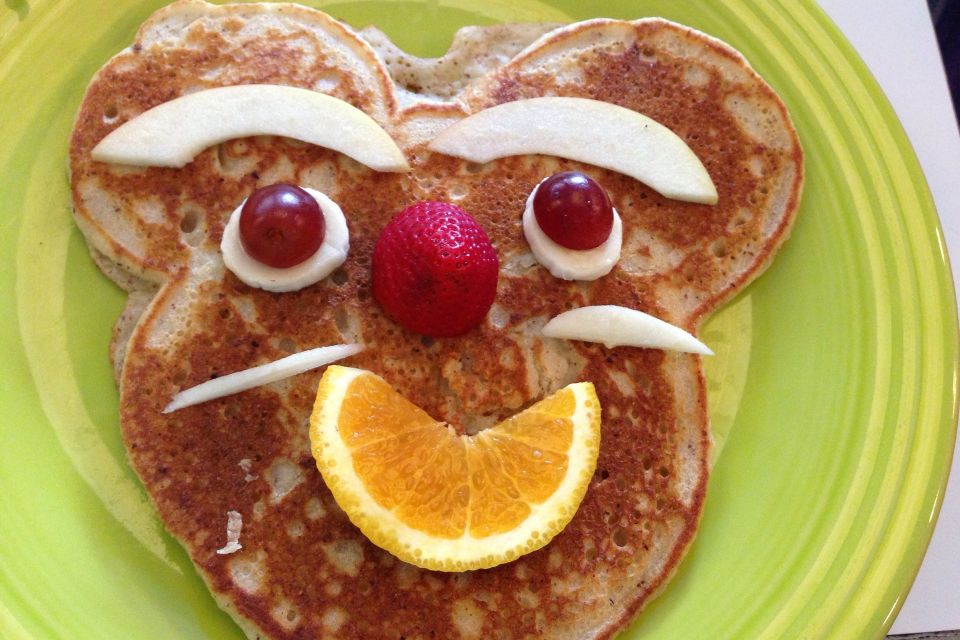Mealtime Challenges and Picky Eating
──

Ever worry that you are raising a picky eater? Does dinner cause you stress as a parent? If you find yourself always pleading, “Just take one more bite,” or frequently getting into mealtime battles, you may find some of these tips helpful to promoting a calm, struggle-free mealtime with your family.
There are a number of reasons kids are selective with foods: sensory issues, developing likes and dislikes in their brain, etc. It's important to have realistic expectations for our children.
Firstly, kids have preferences just like we do. If someone forced me to eat snap peas, I sure would put up a fight. I shouldn’t expect anything more from my child either. It’s normal. Let me repeat, IT IS NORMAL for kids to exert independence at mealtime. Kids are their own little humans learning to operate in a world with choices. It is developmentally appropriate, and healthy for kids to have likes and dislikes. Additionally, kids aren’t in charge of a lot of things in their lives, and if we are honest, much of their day is planned and calculated. The two places kids have some level of control are what they put in their mouth and when they close their eyes to sleep. This is why we often see mealtime and bedtime challenges.
Here are my top two tips for managing mealtime challenges:
1.Focus on keeping consistency with mealtimes and recognizing that we can only control what we put on the plate and let go of the rest. Seriously, this is one of those lessons I am constantly relearning as a parent. Giving up control is easier said than done, but once we recognize what we can and can’t control and let go of the rest, I promise it will feel freeing! If we focus our attention on having a consistent mealtime schedule (which looks different for every family, and that’s okay!), it will help kids know what to expect and feel confident in that.
2.It might seem counterintuitive, but it will minimize pressure around mealtime and maximize moments for toddler/child independence. When kids don’t eat, our instinct is to exert more power and force/persuade our kids to eat, but that often leads to power struggles; Kids want to fight back.
Here are some other tips to increase exposures to foods and help our kids create a healthy relationship with food:
If you are looking for more tips on how to manage behavioral issues at the dinner table, see this article from Child Mind Institute.
There are a number of reasons kids are selective with foods: sensory issues, developing likes and dislikes in their brain, etc. It's important to have realistic expectations for our children.
Firstly, kids have preferences just like we do. If someone forced me to eat snap peas, I sure would put up a fight. I shouldn’t expect anything more from my child either. It’s normal. Let me repeat, IT IS NORMAL for kids to exert independence at mealtime. Kids are their own little humans learning to operate in a world with choices. It is developmentally appropriate, and healthy for kids to have likes and dislikes. Additionally, kids aren’t in charge of a lot of things in their lives, and if we are honest, much of their day is planned and calculated. The two places kids have some level of control are what they put in their mouth and when they close their eyes to sleep. This is why we often see mealtime and bedtime challenges.
Here are my top two tips for managing mealtime challenges:
1.Focus on keeping consistency with mealtimes and recognizing that we can only control what we put on the plate and let go of the rest. Seriously, this is one of those lessons I am constantly relearning as a parent. Giving up control is easier said than done, but once we recognize what we can and can’t control and let go of the rest, I promise it will feel freeing! If we focus our attention on having a consistent mealtime schedule (which looks different for every family, and that’s okay!), it will help kids know what to expect and feel confident in that.
2.It might seem counterintuitive, but it will minimize pressure around mealtime and maximize moments for toddler/child independence. When kids don’t eat, our instinct is to exert more power and force/persuade our kids to eat, but that often leads to power struggles; Kids want to fight back.
Here are some other tips to increase exposures to foods and help our kids create a healthy relationship with food:
- If you do dessert, offer desserts on the same plate as dinner to help keep all food on the same playing field. We don’t want to put dessert on a pedestal so this helps keep all foods equal. Dessert can look like frozen fruit, a cookie, etc. You choose.
- Offer one preferred food on the plate at each meal but serve what you normally serve. If we serve a different meal for a child, this can limit exposure to new foods based on what we think kids will eat (AND, it can be extremely taxing on parents who already have to prepare a meal).
- Consider offering a “No, thank you” bowl. Offering a bowl on the table for children to place unwanted items allows kids to feel in charge of deciding what they do and don't want to eat. Giving them this power, we notice kids eat more because they feel more independent and in control with less pressure from parents/caregivers.
- The less pressure around mealtime the better. I highly recommend not talking about food at the dinner table, choose another topic. Maybe do a game called Mad, Sad, Glad. Each family member says one thing that made them feel each emotion today. If kids aren’t quite able to express a time they felt these emotions, that’s okay! Model it yourself and you will be surprised by how quickly kids catch on and learn the skill of reflecting on their day.
- As caregivers, it’s easy to think if our kids don’t eat enough for dinner, they aren’t getting enough nutritional value. I urge you to talk with your doctor if you have concerns about nutrition or healthy weight gain in your children. If there are no medical concerns, it is best to operate under the premise that kids know their bodies and will eat when they need to. Additionally, recognizing all foods have nutritional value, we begin to understand it’s okay if kids only eat bread or eat no vegetables for one meal.
- Provide more exposure to foods. The more exposure children have, the more likely they will touch and eat new foods on their own time. Here are some ideas to create more exposure and open their mind to new food items. Remember, if kids touch food, that is exposure. If they put it up to their mouth or smell it, that is exposure.
- Go to a farm
- Make a game out of taste testing things blindfolded
- Have a BBQ
- Use toothpicks for dinner instead of a fork
- Cut foods into different shapes with cookie and vegetable cutters
- Eat family style and allow kids to serve themselves the foods they want to eat
- Cook together. You can buy kid-friendly knives here and even wooden toddler knives to allow kids to have a job in the kitchen during meal prep. My daughter enjoys helping me cut fruit and veggies while I cook. Additionally, buying a kitchen helper stool allows kids to be at counter height and feel included during meal prep.
If you are looking for more tips on how to manage behavioral issues at the dinner table, see this article from Child Mind Institute.
